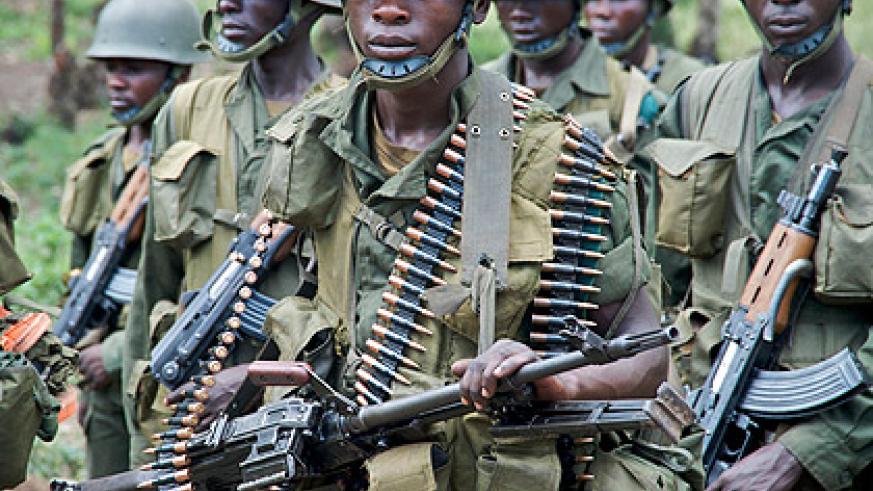A Congolese military court’s conviction of the militia leader Ntabo Ntaberi Sheka and two co-accused for serious abuses is a significant step in the fight against impunity in the Democratic Republic of Congo, Human Rights Watch reported.
On November 23, 2020, a military court in Goma, North Kivu province, found Sheka guilty of seven counts of war crimes committed by his militia, the Nduma Defense of Congo (NDC), in Walikale and Masisi territories in 2010 and between 2012 and 2014. The charges included mass rape and sexual slavery, murder, pillage, and recruitment of child soldiers. While Sheka’s sentence of life in prison delivers a measure of justice for his many victims, the trial revealed serious shortcomings, including the defendants’ lack of the right to appeal the verdict, and the protection of victims and witnesses.
“Sheka’s conviction and life sentence is an important step in the fight against impunity in Congo and a testament to the work of survivors and activists who took great personal risks in the pursuit of justice,” said Thomas Fessy, senior Congo researcher at Human Rights Watch. “At a time when the Congolese government is considering plans for transitional justice, it should draw lessons – both successes and flaws – from this protracted investigation and judicial process.”
The court also sentenced an NDC fighter, Jean Claude Lukambo, alias “Kamutoto,” to 15 years in prison for insurrection and murder. Séraphin Nzitonda, alias “Lionceau,” a former leader of the Democratic Forces for the Liberation of Rwanda (Forces démocratiques de libération du Rwanda, FDLR) and an ally of Sheka’s NDC, was found guilty of rape as a crime against humanity and sentenced to life in prison. Sheka’s nurse, Jean Ndoole Batechi, was acquitted. Four other co-accused remain at large.
Sheka and the co-accused were tried by a military “operational court,” which does not allow for the right to appeal a conviction and sentence to a higher tribunal, contrary to Congo’s constitution and in violation of international human rights law. In keeping with fair trial requirements, the Congolese government should ensure a right to appeal before all civilian and military criminal courts in Congo.
Human Rights Watch worked with two local human rights defenders to monitor the trial since it began in November 2018, and interviewed 13 survivors of abuses, legal counsel, judicial officers, United Nations officials, and members of domestic and international nongovernmental organizations. Human Rights Watch has not yet obtained a copy of the judgment but attended the November 23 hearing during which the verdict was announced.
During the trial, the panel of five judges examined allegations that Sheka’s fighters, along with two other armed groups, raped more than 300 women and dozens of girls as well as at least 23 men and 9 boys in 13 villages on the road from Kibua to Mpofi between July 30 and August 2, 2010. The trial also covered attacks between 2012 and 2014 during which NDC fighters killed, looted villages, burned houses, and recruited child soldiers.
Investigators faced tremendous difficulties in locating survivors as the investigators operated in an active conflict zone over several years. Many victims identified in the early stages of the investigations subsequently had to relocate due to ongoing insecurity and did not participate in the trial as a result. Important evidence such as medical certificates that confirm instances of rape disappeared or were damaged by armed groups.
